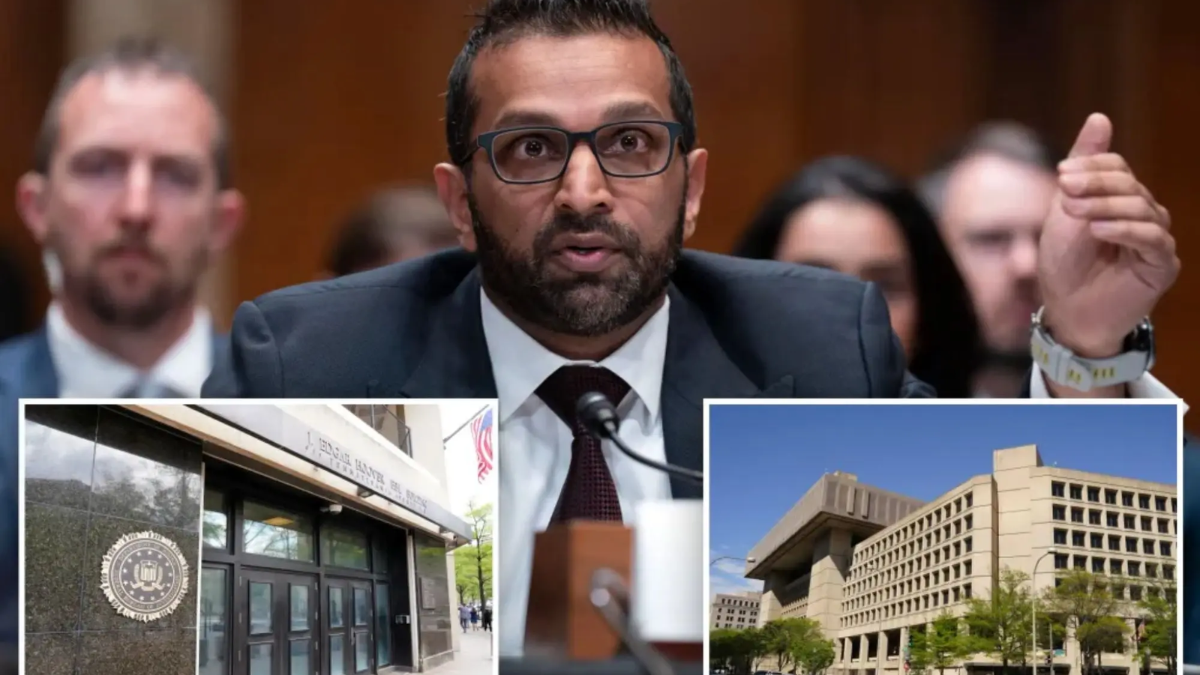Washington D.C. — The Federal Bureau of Investigation (FBI) is preparing to move approximately 1,500 employees out of its iconic headquarters building in Washington D.C., according to recent statements by U.S. Attorney General Merrick Garland and confirmed by FBI officials including Director Christopher Wray and Deputy Director Paul Abbate.
The announcement was further emphasized by key government officials such as Homeland Security Secretary Mayorkas and Attorney General Garland during congressional briefings.
The relocation plan involves closing the FBI’s historic J. Edgar Hoover Building, located in the heart of the nation’s capital, which has served as the agency’s main headquarters since 1975.
The move represents one of the largest internal personnel relocations in the agency’s history and is part of a strategic effort to modernize operations and upgrade facilities.
Reasons for the Move and Headquarters Closure
According to FBI leadership, the decision to move personnel and close the headquarters stems from a need to address aging infrastructure, security concerns, and evolving operational requirements.
The J. Edgar Hoover Building, while historically significant, has long been criticized for outdated facilities and limited space, which pose challenges for modern law enforcement work.
FBI Director Christopher Wray has repeatedly highlighted the importance of ensuring that FBI employees work in environments that support collaboration, advanced technology, and security protocols necessary to meet current and future threats.
In a statement, the FBI noted that the move would allow the agency to consolidate resources in newer, state-of-the-art facilities better equipped to handle cybersecurity operations, counterterrorism efforts, and intelligence gathering.
New Locations and Infrastructure Upgrades
The relocation plan includes moving staff to multiple sites, including the newly developed FBI Campus in suburban Virginia and other regional offices across the country.
The Virginia campus, which opened recently, features enhanced security measures, modern workspaces, and cutting-edge technology tailored to support complex investigations and inter-agency cooperation.
Additionally, the FBI aims to invest in remote work capabilities and flexible workspace models, reflecting changing workplace trends accelerated by the COVID-19 pandemic.
Homeland Security Secretary Alejandro Mayorkas praised the move as a critical step to strengthen national security infrastructure. “Modern law enforcement requires modern facilities,” Mayorkas said. “This relocation enhances the FBI’s ability to respond swiftly to threats and protect American citizens.”

Impact on Employees and Operations
The transition of 1,500 personnel is expected to occur over the next 18 to 24 months, allowing time for a smooth relocation with minimal disruption to FBI operations. The agency has committed to providing support for affected employees, including relocation assistance and career counseling.
FBI Deputy Director Paul Abbate emphasized that maintaining operational continuity during the move is a top priority. “Our mission will not be compromised as we transition staff to new locations,” Abbate stated. “We remain fully committed to protecting the American people.”
This move is also seen as an opportunity to improve recruitment and retention by offering employees modern workplaces with greater amenities and technological resources.
Historical Significance of the J. Edgar Hoover Building
The J. Edgar Hoover Building, named after the FBI’s first director, has stood as a symbol of federal law enforcement in the United States for nearly 50 years. Located on Pennsylvania Avenue, just blocks from the White House and the U.S. Capitol, it has been the backdrop to many high-profile investigations and pivotal moments in American history.
Despite its prominence, the building has faced criticism for architectural design flaws and inadequate security features. Plans to renovate or replace the structure have been discussed for decades, but budgetary and logistical challenges delayed major changes until now.
Congressional and Public Reactions
The FBI’s relocation plan has drawn mixed reactions from lawmakers and the public. Some members of Congress welcomed the move, noting the importance of investing in secure and efficient law enforcement facilities.
Senator Amy Klobuchar, Chair of the Senate Judiciary Committee, stated, “Modernizing the FBI’s infrastructure is essential to maintaining our national security and protecting civil liberties.”
However, others expressed concern over the costs associated with the relocation and the potential loss of the building’s symbolic presence in Washington D.C. Critics argue that the agency’s presence in the capital serves as a vital reminder of federal accountability.
Security and National Implications
Security experts have underscored the strategic advantages of relocating personnel to more secure and technologically advanced locations. In recent years, threats such as cyberattacks, domestic terrorism, and transnational crime have increased, necessitating enhanced operational capabilities.
By consolidating resources in secure campuses, the FBI aims to strengthen coordination with other federal agencies, such as the Department of Homeland Security (DHS) and the Central Intelligence Agency (CIA), to address complex security challenges.
What This Means for the Future of the FBI
This relocation signals a broader modernization effort within the FBI as it adapts to 21st-century threats. The agency’s leadership has repeatedly emphasized the need for agility, innovation, and resilience in its workforce and facilities.
As FBI Director Wray noted in a recent testimony to Congress, “Our mission remains unchanged, but how we achieve it must evolve. Investing in our people and infrastructure is critical to meeting the demands of today and tomorrow.”
The closure of the J. Edgar Hoover Building will mark the end of an era while opening a new chapter focused on enhanced capabilities and preparedness.
How to Stay Informed
The FBI and Department of Justice websites provide official updates on the relocation and related agency initiatives:
- FBI Official Website: https://www.fbi.gov
- Department of Justice: https://www.justice.gov
- Department of Homeland Security: https://www.dhs.gov
Interested citizens can also follow congressional hearings and press releases for the latest information.
Conclusion
The FBI’s plan to relocate 1,500 personnel from its Washington D.C. headquarters and close the historic J. Edgar Hoover Building represents a significant organizational transformation. This move addresses the pressing needs for modernized facilities, enhanced security, and operational efficiency in an increasingly complex threat environment.
While the closure of the landmark building marks the end of a historic chapter, the transition to new, state-of-the-art campuses signals a forward-looking approach designed to ensure the FBI remains a formidable force in protecting national security and upholding the rule of law.
As the FBI undertakes this massive relocation, it reaffirms its commitment to adapting and evolving to safeguard the American people now and in the future.
Disclaimer – Our team has carefully fact-checked this article to make sure it’s accurate and free from any misinformation. We’re dedicated to keeping our content honest and reliable for our readers.
